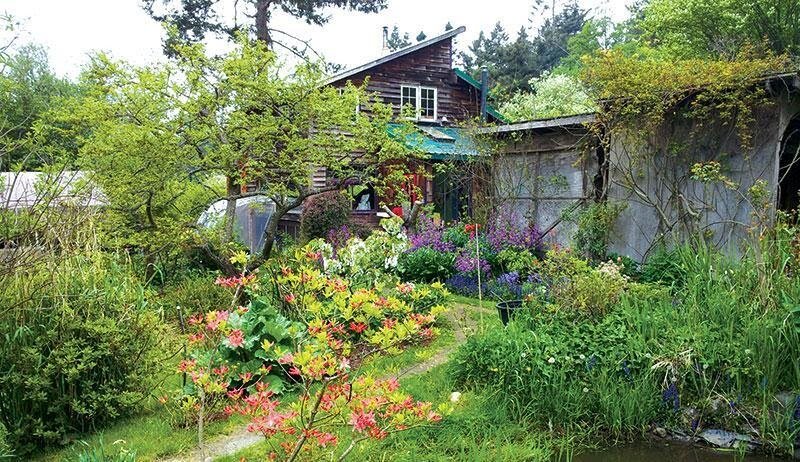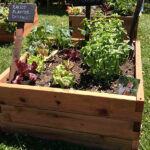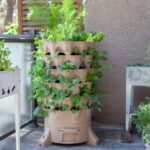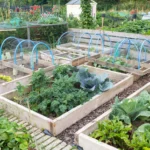Embarking on a homesteading journey is a dream for many, offering the promise of self-sufficiency and a closer connection to nature. However, as with any significant lifestyle change, there are numerous common homesteading mistakes that beginners often encounter. Understanding these pitfalls can help you navigate the complexities of homesteading with greater ease and success.

1. Not Planning Properly
One of the biggest mistakes is diving into homesteading without a solid plan. It’s important to consider your goals, the size of your land, and the resources you will need. Creating a detailed plan can prevent a lot of frustration and wasted effort.
Importance of a Clear Vision
Having a clear vision for your homestead is crucial. Are you aiming to grow your own food, raise animals, or both? Knowing your priorities will guide your planning and help you make informed decisions.
2. Ignoring Local Regulations
Before starting, it’s essential to research local zoning laws and regulations. These rules can affect what you are allowed to do on your property, such as raising livestock or building structures.
Checking with Local Authorities
Always check with local authorities and obtain any necessary permits before making significant changes to your property. This step can save you from potential fines or legal issues down the road.
3. Underestimating the Workload
Homesteading is rewarding but also labor-intensive. Many newcomers underestimate the amount of work required, leading to burnout. It’s vital to understand that maintaining a homestead involves daily chores and ongoing projects.
Time Management is Key
Effective time management can help you balance the demands of homesteading with other responsibilities. Creating a schedule or routine can help you stay organized and productive.
4. Inadequate Soil Preparation
Soil quality is foundational to successful gardening. Many beginners neglect this aspect, leading to poor crop yields. Testing and amending your soil before planting is crucial for a thriving garden.
Testing Your Soil
Start by testing your soil to determine its pH and nutrient levels. This information will guide you in making the necessary amendments to improve its quality.
5. Overextending Resources
It’s easy to get carried away with ambitious projects, but overextending your resources can lead to failure. Focus on a few key projects and gradually expand as you gain experience and confidence.
Prioritizing Projects
Prioritize projects based on your immediate needs and resources. This approach will help you allocate time and energy efficiently.
6. Neglecting Animal Care
If you plan to raise animals, understanding their needs is essential. Many beginners underestimate the commitment involved, leading to poor animal health and productivity.
Researching Animal Requirements
Research the specific requirements of any animals you plan to raise, including their dietary needs, shelter, and healthcare. Proper care will ensure the well-being of your livestock.
7. Lack of Community Support
Homesteading can be isolating, but building a support network is invaluable. Connecting with other homesteaders can provide guidance, resources, and encouragement.
Joining Homesteading Groups
Consider joining local or online homesteading groups. These communities offer a wealth of knowledge and can be a source of inspiration and support.
8. Poor Water Management
Water is a critical resource for any homestead. Failing to manage it effectively can lead to drought-stressed plants and livestock. Implementing a reliable water management system is essential.
Installing Rainwater Harvesting Systems
Consider installing rainwater harvesting systems to capture and store water for use during dry periods. This sustainable practice can significantly benefit your homestead.
9. Overlooking Pest Control
Pests can wreak havoc on your garden and livestock. Many beginners overlook the importance of pest control, which can lead to significant losses.
Implementing Integrated Pest Management
Use integrated pest management techniques to control pests in an environmentally friendly way. This approach combines biological, cultural, and mechanical methods.
10. Not Keeping Financial Records
Financial management is often neglected in homesteading. Keeping detailed financial records is crucial for tracking expenses and ensuring the sustainability of your homestead.
Budgeting and Monitoring Expenses
Create a budget for your homesteading activities and monitor expenses regularly. This practice will help you make informed financial decisions and avoid overspending.
11. Lack of Skill Development
Homesteading requires a diverse set of skills, from gardening to animal husbandry. Many beginners fail to invest time in skill development, hindering their progress.
Learning and Practicing New Skills
Dedicate time to learning and practicing new skills. Consider taking workshops or courses to expand your knowledge and capabilities.
12. Ignoring Seasonal Changes
Understanding seasonal changes and how they affect your homestead is vital. Many beginners fail to plan for these changes, leading to poor crop yields and unpreparedness.
Seasonal Planning
Plan your activities according to the seasons, considering factors like planting and harvesting times, as well as weather conditions.
13. Not Teaching Kids Homestead Skills
Involving children in homesteading can be a valuable learning experience. Many families overlook the opportunity to teach kids essential homesteading skills.
Engaging Children in Homesteading
Engage children in age-appropriate homesteading tasks. This involvement can teach them valuable life skills and foster a love for nature. Learn more about teaching kids essential skills for the future.
14. Not Utilizing Available Resources
Homesteaders often fail to utilize resources available to them, such as online guides, local workshops, and community support.
Exploring Available Resources
Make use of all available resources to enhance your homesteading experience. Online platforms and local resources can offer valuable insights and support.
15. Overlooking the Importance of Rest
Finally, many homesteaders push themselves too hard and overlook the importance of rest and self-care. Burnout can be a real issue in this demanding lifestyle.
Prioritizing Self-Care
Ensure you make time for rest and relaxation to maintain your physical and mental well-being. Remember, a healthy homesteader is a successful one.
For more insights on the benefits of homesteading, check out this article on health benefits.
Conclusion
By recognizing and addressing these common homesteading mistakes, you can set yourself up for a rewarding and successful homesteading journey. Remember, learning from mistakes is part of the process. With patience and perseverance, you can create a thriving, sustainable homestead.

FAQs
What are the most common mistakes in homesteading?
The most common mistakes include lack of planning, underestimating the workload, neglecting animal care, and poor financial management.
How can I improve my homesteading skills?
Improving homesteading skills involves continuous learning, practicing new skills, and seeking guidance from experienced homesteaders.
Why is community support important in homesteading?
Community support provides valuable resources, knowledge sharing, and encouragement, which can greatly enhance your homesteading experience.
For more information on starting your own backyard homestead, visit this helpful guide.






